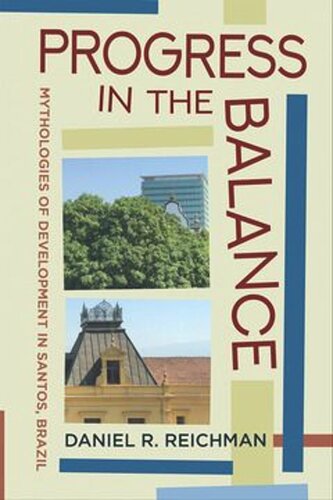

Most ebook files are in PDF format, so you can easily read them using various software such as Foxit Reader or directly on the Google Chrome browser.
Some ebook files are released by publishers in other formats such as .awz, .mobi, .epub, .fb2, etc. You may need to install specific software to read these formats on mobile/PC, such as Calibre.
Please read the tutorial at this link: https://ebookbell.com/faq
We offer FREE conversion to the popular formats you request; however, this may take some time. Therefore, right after payment, please email us, and we will try to provide the service as quickly as possible.
For some exceptional file formats or broken links (if any), please refrain from opening any disputes. Instead, email us first, and we will try to assist within a maximum of 6 hours.
EbookBell Team

4.3
18 reviewsThrough a historical ethnography of Santos, Brazil, Progress in the Balance addresses and assesses an anthropological theory of progress. Observing that anthropology is a progressive discipline with a pessimistic attitude towards progress, Daniel Reichman explains the contested meanings of progress in Brazil and explores how anthropologists and others can define this concept more generally. He investigates how any society can separate "progress" from plain old change and, if change is constantly happening all around us, how and why certain events get lifted out of a normal timeframe and into a mythic narrative of progress.
Each chapter outlines a particular episode in the history of Santos, a city undergoing an unprecedented period of economic and political turmoil, as it is represented in public culture, mainly through museums, monuments, art, and public events. Drawing on the anthropology of myth, Reichman proposes a model that he refers to as a "clash of timescapes." Progress in the Balance shows how this concept of "progress" requires a different temporal structure that separates sacralized social change from mundane historical events.